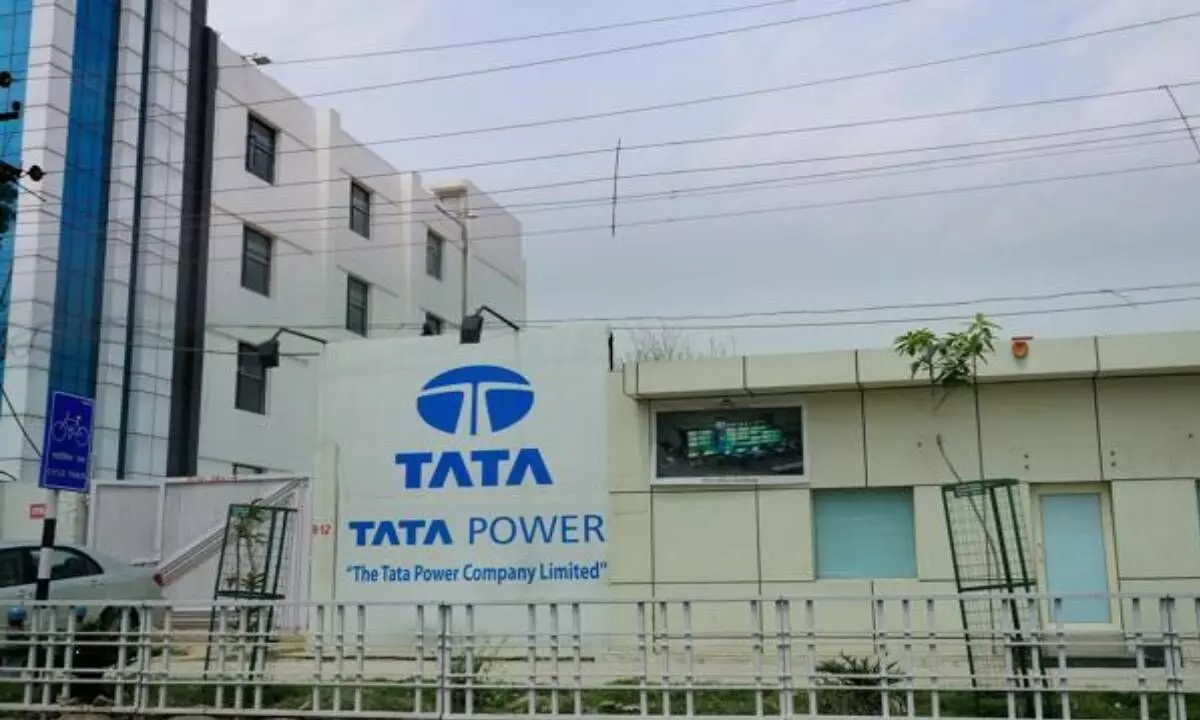Tata Power moves to the CERC for higher tariff demands
Tata Power Company has moved to the Central Electricity Regulatory Commission (CERC), asking for a higher tariff than the one set by the committee, and had a hearing on the matter on May 17.
image for illustrative purpose

Tata Power Company has moved to the Central Electricity Regulatory Commission (CERC), asking for a higher tariff than the one set by the committee, and had a hearing on the matter on May 17.
"Tata Power's Mundra power unit falls under the CERC jurisdiction so they have approached them. The rest of the power plants have made a representation with the government asking for a revision in tariff as the producing power at these levels will not be feasible at the prevailing coal prices in international markets. The ministry of power will be meeting some of these imported coal-based power generators on May 19.
As power demand continues to soar even as power generators scramble for fuel, the government has asked all imported coal-based power units to run at full capacity by invoking Section 11 of the Electricity Act. The Ministry of Power set up a committee, which will include representatives of the ministry, Central Electricity Authority and Central Electricity Regulatory Commission, to work out the rate at which power will be supplied from these units to power distribution companies (discoms) that have a power purchase agreement (PPA) with them.
The committee has recommended a variable tariff of Rs 6 to a little over Rs 7 for these units. These units are run by private producers like Tata Power, Essar Power, JSW Energy, and IL&FS.
"At this rate, we cannot afford to import good quality coal to run our plants at 100% plant load factor. We have sought the ministry's help," another official said.
The government has also allowed these power generation units to sell surplus power on power exchanges in case the PPA holder discom or discoms don't buy power.
"Selling on the exchanges will also not be a viable option given how the prices have fallen on the exchanges," yet another official said.
Indian Energy Exchange's Chairman and Managing Director Satyanarayan Goel told Moneycontrol in an exclusive interview that the day-ahead market (DAM) and the real-time market (RTM) have both seen significant corrections in prices in May after supply constraints pushed prices up in March-April. In the week ended May 15, the average price in the DAM market was Rs 5.41 per unit while the average RTM price was Rs 4.63 per unit. The exchange average prices were around Rs 10.38 per unit just 10 days ago.
The Economic Times reported on May 18 that Tata Power has sought a tariff of Rs 9.11 per unit against a variable Rs 6.05 per unit rate set by the committee headed by CEA chairperson BK Arya. The fixed charge for the 4,000 megawatts project at Mundra is Rs 0.90 per unit.
India's imported coal-based generation capacity is around 17,600 megawatts (MW). But the power purchase agreements for such plants do not allow for passing on the entire increase in international coal price, forcing them to either shut plants or run them at low capacity to minimise or avoid losses.
In March-April, many states had to undertake power cuts as coal supply to power units dwindled and hit output. The Power Ministry has been pushing states and power generation companies to import coal to supplement the domestic supply. The ministry said on May 18 that it has directed generation companies to place orders for import of coal for blending by May 31.
If the imported coal for blending purpose do not start arriving at the power plants by June 15, all the defaulter power generation companies would have to import coal for blending purpose to the extent of 15% as against 10% stated by the ministry earlier, to meet the shortfall of imported coal for blending purpose in Apr-June 2022, in the remaining period up to October 31.

